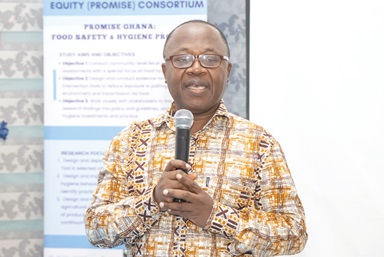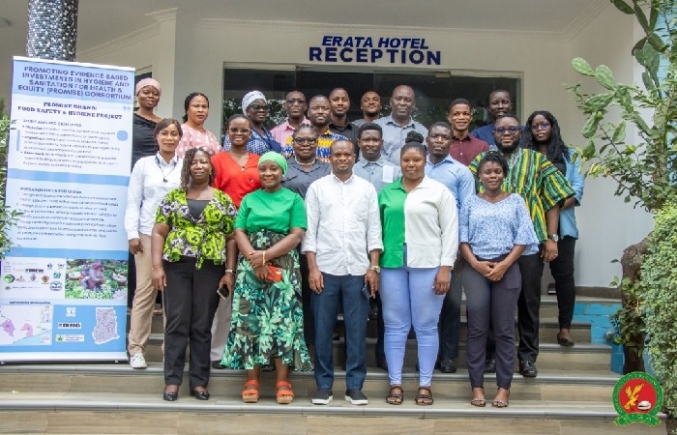
Poor food hygiene practices major contributor to recent cholera outbreak — MLGCRA
Poor food hygiene practices have been identified as a major factor contributing to the recent cholera outbreak in several regions of the country.
It is thus critical for stakeholders to recognise and prioritise the food sector due to its significant impact on public health and the economy.
In that regard, the Head of the Environmental Health and Management Unit at the Ministry of Local Government, Chieftaincy, and Religious Affairs (MLGCRA), Mr Kweku Quansah, has emphasised the need to strengthen regulatory bodies and enhance public education and awareness campaigns on food hygiene as crucial steps to address the issue.
Citing recent data from the Ghana Health Service which reported 480 confirmed cholera cases and 43 deaths from October 2024 to January 2025, Mr Quansah urged metropolitan and district assemblies to increase their efforts in supporting food vendors to adhere to proper hygiene standards.
Advertisement
"When people fall ill due to foodborne diseases, it has far-reaching consequences on families, the nation, and communities.
One key thing we, as Ghanaians, need to focus on is how we can collectively ensure our food is safe, especially street food.
"Many people prepare and sell food at various locations, particularly at night often out of sight of the regulatory authorities.
“It is crucial for us to work through the staff of metropolitan, municipal, and district assemblies to regulate and support the proper management of vendor activities," he stated.
Event
Mr Quansah made the call during the launch of the national stakeholders' workshop on promoting evidence-based investments in sanitation and hygiene for health and equity (PROMISE) Ghana Project last Thursday in Accra.
He spoke on the topic, "Overview of food safety practices in Ghana: challenges and related public health implications."
The workshop was organised by the MLGCRA in partnership with the Training Research and Network for Development (TREND), an NGO.

The event marked the official launch of the PROMISE Ghana Project, a two-year consortium initiative aimed at designing and conducting evidence-based intervention trials to reduce environmental pathogen exposure and transmission through food.
Participants were drawn from various metropolitan, municipal and district assemblies.
Some participants shared presentations on how they were addressing the challenges of food vending and public health concerns across the country.
Food hygiene challenges
Mr Quansah expressed concern about food contamination occurring at all stages of the food chain, including crop, livestock, and fisheries production.
He highlighted particular concerns regarding the insufficient enforcement of food safety laws, the lack of collaboration among food safety institutions, and the absence of data needed for effective planning and decision-making.
"The recent reports on food-related/borne disease outbreaks call for concerted efforts from all stakeholders in the Food Safety and Hygiene space to save the lives of the populace from these easily preventable diseases," he said.
PROMISE Project
The Project Manager of the PROMISE initiative, Ato Kwamena Senayah, explained that the project aimed to collaborate with stakeholders to translate research findings into policy and guidelines, to influence hygiene investments and practices.
He emphasised that the organisers were focused on conducting technical training workshops with local partners to build capacity for effectively implementing environmental health practices, ensuring impactful and sustainable solutions to critical hygiene and sanitation challenges in the country.
"At the PROMISE Project, we recognise the many innovations happening globally, including the rise of Artificial Intelligence (AI) and new methodologies for tackling various challenges," he said.
"When we discuss environmental health practices, it’s essential to explore these emerging methods and concepts for the benefit of the Ghanaian people," he added.
